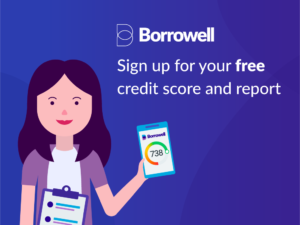 When I was in my early 20s, I had a decent credit score, but it might not have ended up that way. Luckily, I had financially responsible parents who taught me the importance of using my credit card responsibly. That meant only charging what I could afford to pay off in full at the end of the month on my credit card. However, I recognize that if my parents didn’t take the time to sit down with me, I could have found myself in credit card debt like a lot of my friends in university.
When I was in my early 20s, I had a decent credit score, but it might not have ended up that way. Luckily, I had financially responsible parents who taught me the importance of using my credit card responsibly. That meant only charging what I could afford to pay off in full at the end of the month on my credit card. However, I recognize that if my parents didn’t take the time to sit down with me, I could have found myself in credit card debt like a lot of my friends in university.
Although financial literacy is better in the school systems these days, it’s still lacking in many parts of the country. Young adults are mostly on their own when it comes to learning about their personal finances. If you have financially responsible parents like me, you’re more likely to learn important financial lessons. However not all families are quite as lucky as mine.if your parents have ever fallen on hard times and often carry balances on their credit cards or are regularly late on their payments, you might think it’s perfectly normal behaviour. It can be frustrating trying to be “good with money” when you don’t know where to start, and this may lead to money problems later on in life.
Although a lot of our schools are teaching basic personal finances lessons like budgeting and debt management these days, there’s still a lot of confusion surrounding credit. Our credit remains one of the most misunderstood aspects of our personal finances.
Circling back to the point I made earlier, while my parents educated me about the importance of using a credit card responsibly, they weren’t able to provide me with much guidance when it came to credit scores. I knew a higher credit score was better, but I didn’t have a clue what credit score you needed to apply for a mortgage (generally you need a credit score of at least 680 to qualify for the best mortgage rates).
This wasn’t my parents’ fault. They never learned about credit scores in great depth growing up. My mom and dad knew that if you paid off your credit card every month it generally helps your credit score, but beyond that, they didn’t know much else.
Thank goodness my credit score was decent when I applied for a mortgage, otherwise, I might not have been able to purchase a home and burn my mortgage, but it was good more through luck than knowing what I was doing. There simply weren’t a lot of resources available a decade ago when I was in my early 20s for credit scores.
I wish a service like credit monitoring was available from Borrowell in my early 20s. It would have made life a lot easier. I could have learned about the various factors that make up a good credit score in Canada and taken the necessary steps to build and improve my credit to prepare myself for applying for a mortgage to buy a home. I could have also monitored my credit score on a monthly basis to make sure it’s heading in the right direction.
When I applied for a mortgage the first time, I was just happy when the bank said yes. If I had known that I had a decent credit score, I would have shopped around more and been more likely to find a better mortgage option.
The Borrowell Credit Coach also would have helped a lot. Molly, Borrowell’s AI-powered Credit Coach, could have helped me learn about credit a lot faster. I could have taken out a credit card at a younger age and started exhibiting good credit behaviours sooner.
Thankfully tools like credit monitoring and the Borrowell Credit Coach are available today. If you haven’t already, I’d strongly encourage you to sign up for Borrowell’s credit monitoring and Credit Coach. They’re absolutely free and will set you on the right financial path, by making it a lot easier to keep a watchful eye on your credit score and take the necessary steps to make sure your credit score is trending upward. This will help you save money when you apply for credit like a mortgage or loan later on. Readers, what personal finance advice would you give to your younger self?
Sean Cooper is the bestselling author of the book, Burn Your Mortgage: The Simple, Powerful Path to Financial Freedom for Canadians, available now on Amazon and at Chapters, Indigo and major bookstores, and as an Audiobook on Amazon, Audible and iTunes.